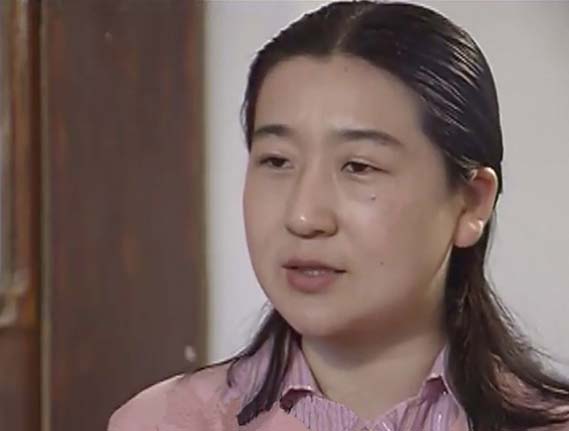

Xiao Min grew up in a little village in Henan. Xiao Min said :”I was born into a family of farmers; my parents are simple farming folks. My mother never went to school and my Dad studied for only a year or two. He barely reads. They were very poor.While I was in Junior High, I suffered sinus infection. Every day, about noon, I felt dizzy and nauseous. I couldn’t finish the day. Soon, I just quit school all together. So often, during prayer time, quiet time or time of meditating on God’s Word, the Holy Spirit would come and bring me a verse or two. Usually within five or ten minutes, I’ll be singing the hymn with melody and lyrics.”
Later, Xiao Min was given a little recorder. She records what comes into her mind, whether it‘s day or night. Later, she writes down the words, and someone else writes down the scores.
During walks in the field or during prayer meetings, Xiao Min finds inspiration from the world around her. Her heart is always open to be touched by the Lord. The Canaan Hymns came down to this golden land from the deep blue sky. They are an eternal gift from the timeless beauty of the heavens, a gift of love to those who inhabit our precious earth. These hymns have spread over the immense land of China in the blink of an eye.
A missionary said: “We once were on a mission to the tribal villages in the province of Yunnan. There we needed inspiration from the hymns more than ever. When we were feeling hopeless and weak, it was Xiao Min’s hymns that gave us strength.” People who are deeply moved by the songs in the Canaan Hymns may be curious about the peasant songwriter. There is a deep spiritual connection between her and God.
Since she became a Christian, Xiao Min’s life was no longer hers alone. She is the messenger that God chose for China.
Jesus is walking on the land of China. He walks with grace and supreme power but in simple clothes. He walks into poor and desolate villages, through main streets and narrow lanes
He is followed by groups of Chinese people. Among them is the singer Xiao Min.
Many years ago, Xiao Min became a mother, but her life still belongs to God and His Church. She is a beloved daughter of China. Her songs continue to flow from her heart.
Canaan Hymns are becoming the holy songs of the Chinese nation. They are the pulse of seventy million Chinese Christians. They reflect the path where so many missionaries walked in the past century. They prophesy the inescapable destiny of the Chinese nation.
Canaan Hymns is Part 4 of the documentary called “The Cross: Jesus in China.” It is the story of Xiao Min. You can watch it for free from Chinasoul.org. It is at the bottom of the page.
Two websites where you can download Canaan Hymns. However, they are in Chinese.
Canaan Hymns or Songs of Canaan (Chinese: 迦南诗选; pinyin: Jiānan Shīxuǎn) is a collection of Chinese hymns composed by Lü Xiaomin, a Christian convert peasant woman with no musical education. She proved to be a prolific song writer after starting to write hymns in 1990. As of February 2016, she has written 1,682 Canaan hymns. Xiaomin’s theologicaly background is in Pentecostalism and the local churches movement, and the hymns reflect themes of Christology, pneumatology and eschatology against the backdrop of Chinese political realities.
Canaan hymns are one of the most successful underground Christian publication in China. They are used by many Protestant churches in the country. Both Chinese house churches and churches of the Three-Self Patriotic Movement use them, despite the latter having criticized the hymns through its official channels. The Chinese government has targeted censorship efforts on the distributors of the hymnal. Overseas Chinese communities and Taiwanese churches use the hymnal, too. Even people with little education can learn the hymns, which are short and musically simple, usually rhymed, and resemble Chinese folk songs. This has contributed to their popularity. The can also be sung without instruments. Their Chinese elements and Confucian undertones make them more acceptable than foreign hymnals to Chinese worshipers. There is a strong emphasis on the communal aspects of the Christian church. Some hymns are patriotic.
Xiao Min presently lives in a remote village in northern China; Where she continues as an itinerant village evangelist, and writing more Canaan Hymns.